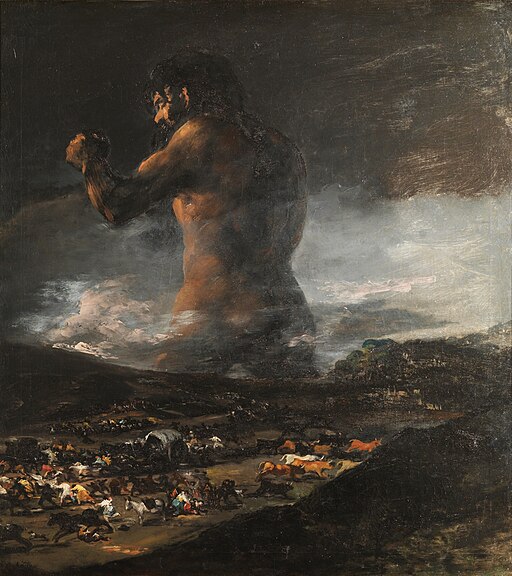One of the under-acknowledged impacts of 911 is what it did to the general mental status of citizens in this country – at personal, collective, and institutional levels. It catalyzed a regression in America’s collective maturity and lowered the nation’s immunity to chicanery.
Denial of trauma can bog-down grief. We have been in denial about Al-Qaeda’s return-on-investment from the attacks. It’s not that Al-Queda won, but that we lost. We lost real bad – a far worse defeat than our cruel misadventure in Vietnam. It cost us more than we admit. Financially, economically, psychologically, politically, militarily…pretty much across the whole ship.
We bungled a colossal opportunity to learn how to effectively deal with malicious forces as we incompletely dislocated from one century into the next.
Whereas the attacks on Pearl Harbor galvanized a focused initiative to beat enemies, 911 induced a kind of psychosis – a scatter-brained break from the realities of policy – in which panic seized strategy and fear morphed from danger signal into mindset. And even then (although largely forgotten), America still could have slouched down an alternate path (think the ilk of Charles Lindbergh and organizations such as the German American Bund). The pull of 1930s American fascism tugs on us yet.
Panic, over-consumption of (shitty) entertainment, and the growth of digital media increased apophenia, leading eventually to a politics composed of little more than opinions and conspiracy buffoonery.
Trump and Magasm aren’t surprising results (in spite of the inveterate arrogance of establishment pollsters, pundits, and operatives).
But here’s an observation about Trump where a lesson might be taken:
Trump upset the pre-2016 order of how to bring about changes in public discussion. Before him, everything was predictable…and, worse, almost impossible to change. The “House” of the system so-to-speak would always win. The house cat may have smiled in approval of change, but its proverbial claws extended for all to see during Occupy Wall Street.
If you wanted a sane way to allocate Healthcare, good luck commie.
If you wanted poor kids to eat so that they could study in order esteem themselves into adulthood and ensure America’s future under the stars, eff off pinko.
If you wanted women to live in a world where they didn’t have to answer to men for a single damn thing, forget about it feminazi.
If you merely pointed out the foundational absurdity of slave owners screaming for liberty from the British yoke of taxation-without-representation, leave the country traitor.
If you attempted to explain how centuries of systemic slavery (and the various mindsets that established and enforced it) continue to brutalize the descendants of kidnapped and tortured Africans, you were commanded to put away the race card.
The system wasn’t going to substantially change. Incremental changes were your best hope, and a long nasty slog over a morsel at that.
Although advocating for a better world will coax the ire of Trumpian trolling and the admonitions listed above, the old model is forever broken. Those pillars collapsed and have yet to be rebuilt anew. And therein lies opportunity.
Trump was the wrong person to break the dialectical confines of the system. He ‘broke’ it in a way that shifted the Overton Window open for neo-fascism. But at least we now know something that we didn’t know before: the windows of the system *can* be broken. This is a big deal, bigger than a passing glance would intimate. We can call the system’s hypocritical bluff that radical action is permissible but impossible. We are now free to articulate the many ways we are not free.
Indeed, Trump and the vulnerabilities that led to Magasm may have ushered-in a global backslide towards Fascism. We may face a world of virtual apartheids that are harder to break than steel cages.
But for those of us who want to make the world a better place for more people, knowing that fundamental change *is* possible means that a workable hope can be forged. The 20th Century is dead, as it should be – it was loaded with evil and sprinkled with good.
In this Century, however, successful positive change depends on new principles and practices…on a new kind of work. The 20th Century frameworks no longer hold (which is why entrenched political careerists are mystified by Trump). Genuine social advancement requires more than just political parties. It needs serious policy research, development, and implementation; tenacious persuasion of key messages; and a militant focus on displacing organized trolling.
Just as we have been in denial about our loss stemming from 911, some of us are in denial about the persistence of today’s Weird Politik. The anxiety-provocations of cunning manipulators won’t stop. No push-button will turn off Antisemitism, racism, misogyny, or other manifestations of weak and violent mindsets. This is a time that demands relentless and unforgiving Chutzpah.
A question then: who or what can break the system in a way that moves us beyond the impasses traditionally inherent in it without ushering-in the colossal ghosts of the last Century? Unlike Goya’s Colossus, today’s pernicious giants aren’t simply going to walk off into the distance.
The American Horizon still persists, but daylight tires.
